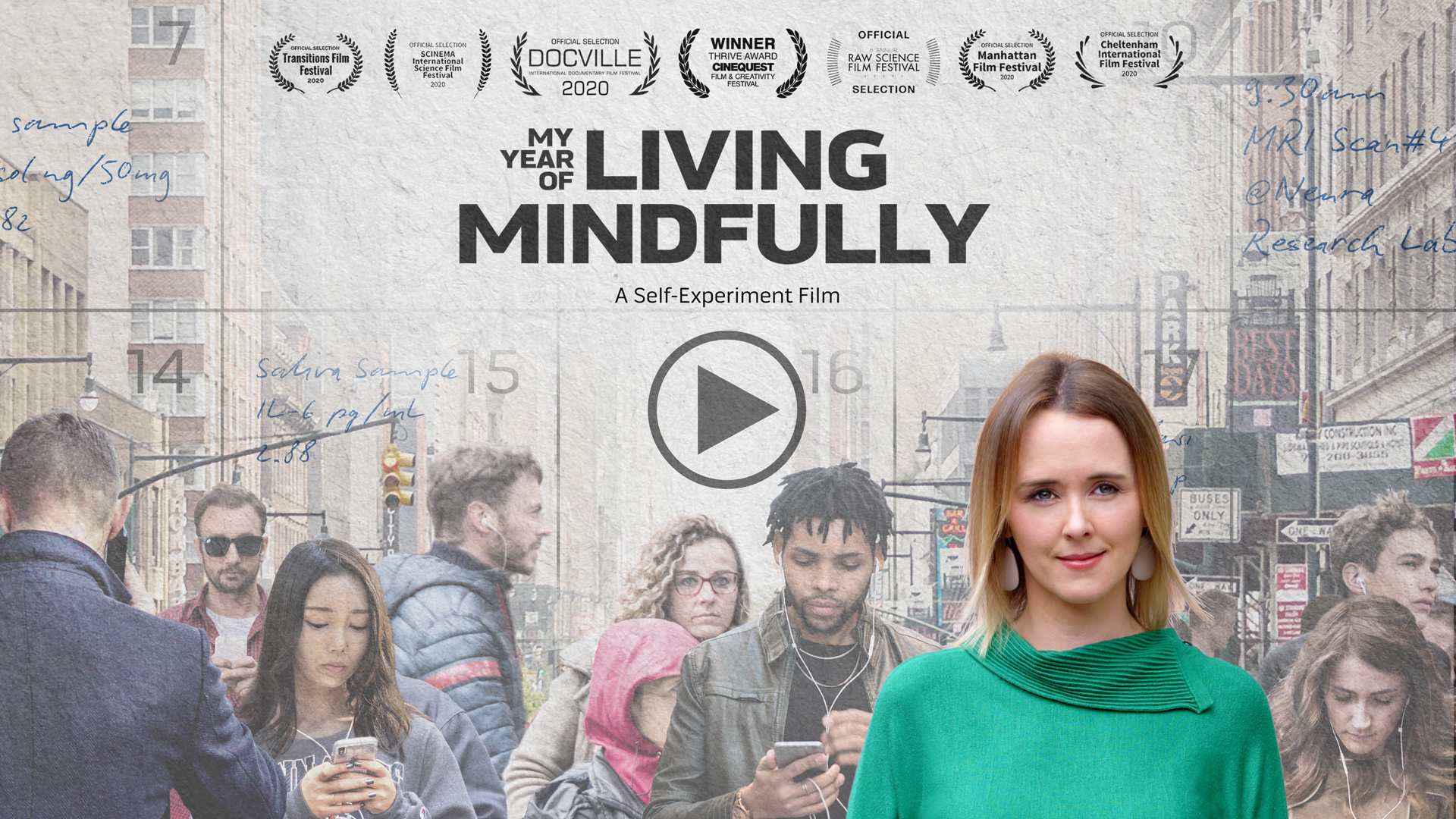As Tich Nhat Hanh says:
“The art of happiness is also and at the same time the art of knowing how to suffer well. If we know how to use our suffering, we can transform it and suffer much less. Knowing how to suffer well is essential to realising true happiness.”
This was a key learning for Shannon Harvey in her ground breaking self-experiment of “My Year of Living Mindfully”. A quote from her Beginner’s Guide to Starting a Mindfulness Practice sums this up beautifully; “mindfulness makes me more comfortable in life’s inevitable discomfort”. This Guide has some great tips and is well worth a read.
Shannon is a health journalist who, in her own words, is ‘on a mission to inform, empower and inspire you to make long-lasting, healthy changes in your life’. As a young woman suffering insomnia and an incurable autoimmune disease she was well acquainted with suffering. Adding to this, being a mother concerned about her kids growing up within an epidemic of stress, anxiety, depression and addiction, she was looking for answers. So, she enlisted 18 world leading mindfulness experts and set up a self-experiment to see whether the simple act of quietening the mind on a regular basis might be a solution. This is now beautifully documented in her film “My Year of Living Mindfully”.
I’m very happy to offer a free viewing to my ‘insiders’. I’ve purchased a small license so please just use it yourself without passing it on to others. Instead, you can invite them to join my mailing list. And, if you’ve stumbled across this, please sign up to my list here.
https://au.thewholehealthlife.com/apps/downloads/orders/info%2540yogafromtheinside.com.au/25944636
I’m even happier that Shannon agreed to do an interview with me about her experience of a year of living mindfully. Here it is……
Question: I love that the film is a combination of both an objective exploration of the evidence base around the efficacy of mindfulness, and your own subjective self-experiment journey. At a point in your journey you recognise that the objective evidence isn’t that important to you in favour of your own subjective experience. You note that you made a subtle shift from mindfulness being something that you were doing to feel better to something that you were engaged in for its own sake. As the motivation to ‘feel better’ dropped away, what replaced it? And, what has been the impact on your quality of life after a year of living mindfully if not feeling better?
Answer: Initially I was extrinsically motivated. The scientists tracking me were the ‘stick’ making me do this. This is what is known as a ‘commitment contract’
(Have a look at A Beginner’s Guide to Starting a Mindfulness Practice I wrote where I elaborate on this) where the version of me that sets a health goal doesn’t trust the future version of me to actually stick with it. As time went by though and I deepened into the practice, my motivation became more intrinsic. To be clear, it’s not that I ‘wasn’t feeling better.’ It’s that I was learning how to suffer better. And that made all the difference. Although you might think this is two sides of the same coin, for me there’s a really big difference between learning to suffer and getting happier or feeling better. During the film I ask Professor Amit Bernstein if he thinks that part of the problem is that we’re not taught how to suffer. I asked this because this was very much a central part of my year-long experiment… learning the HOW of suffering.
Question: You explain in the film that your early experiences of mindfulness were ‘not necessarily pleasant’ as you encountered the contents of your mind. As a mindfulness educator I find it very hard to motivate people through this initial discomfort. You were highly motivated to keep going because of your project. As you look back, imaging that you didn’t have this motivation, do you think there is some way that you could have been oriented to, and supported through this initial discomfort?
Answer: This is why I think that mindfulness teachers are essential. Unfortunately many people think that learning from an app is all they need to do. But this is akin to learning how to exercise from an exercise video vs learning from a personal trainer. There are also so many myths about mindfulness (i.e., that it’s relaxing) that people are turned off when it turns out to be different from what they thought. I think that mindfulness may need a slight re-brand with an emphases on the mental training and skills rather than ‘relaxation.’
Question: As both a mindfulness educator and someone who has lived experience of depression I am so grateful that you have used this film to pose the question whether mindfulness could really be part of the solution for the mental health epidemic that we are experiencing in our modern lives. Your findings are encouraging. Could you explain, now that the film has been released, what your hopes are about how your work will be applied to contribute to the solution?
Answer: As I wrote in the Beginner’s Guide recently, I don’t actually think ‘everyone’ should meditate or learn mindfulness. There is still a lot more research to do. My hope though is that mental health research and evidence-based programs more broadly are given a huge boost and a promotion in our collective consciousness. I hope the film will spark meaningful conversations about practical things we can all be doing for our mental health. The health of humanity and the health of our planet depends upon it.

